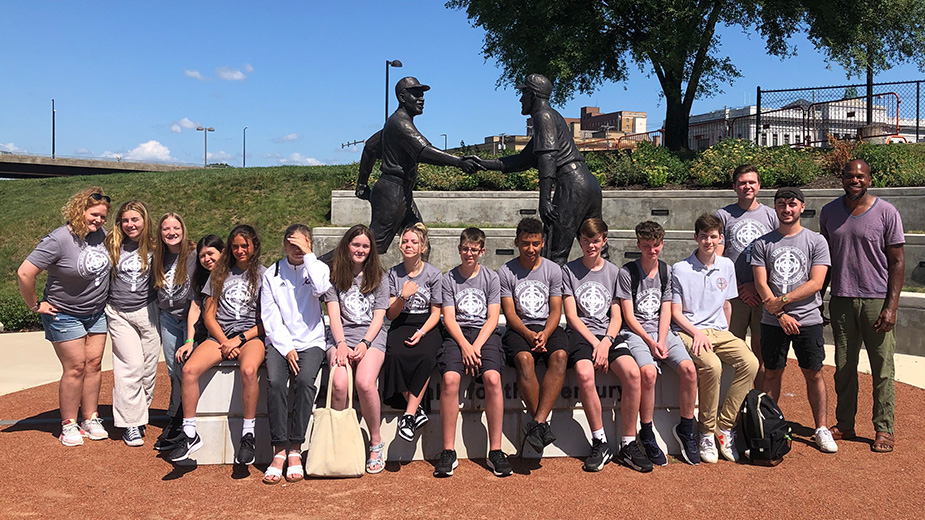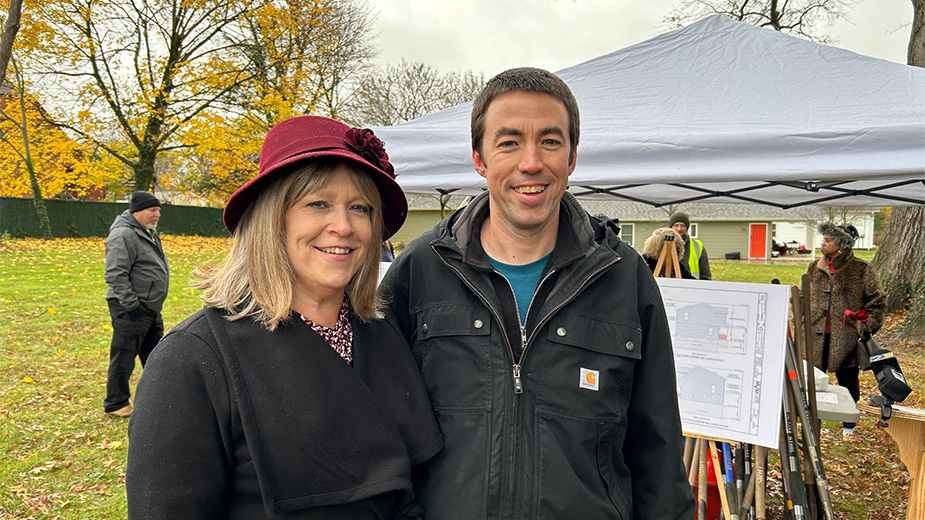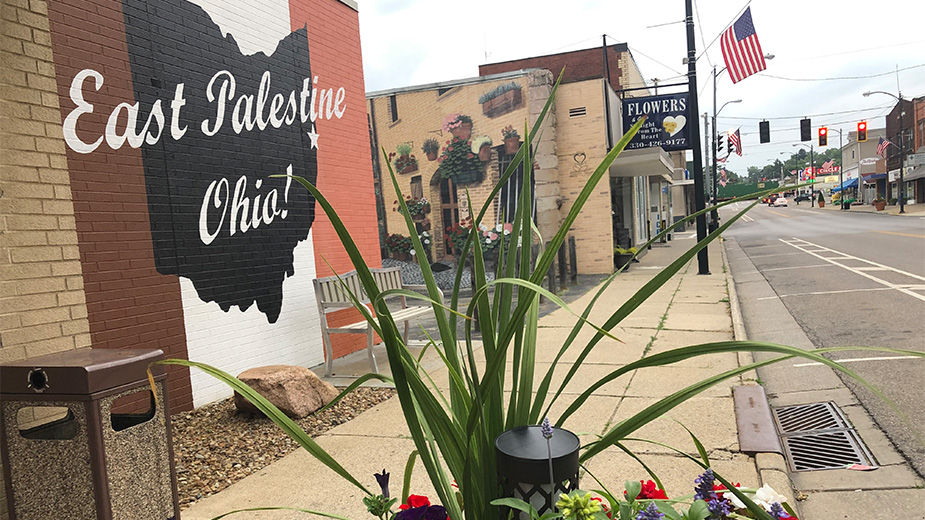Robinson-Shuba Statue Provides Inspiration for Belfast Students
YOUNGSTOWN, Ohio – There was a lot to consider as students from Belfast, Northern Ireland, viewed the Robinson-Shuba Statue in Wean Park.
Derrick McDowell, community engagement and inclusion coordinator at Wean Park, used the story of George Shuba of Youngstown greeting his minor-league teammate, Jackie Robinson, with a handshake after a home run in 1946 to talk about the history of racial tensions.
Many of the students he spoke to Monday know far too well what tensions – in their case, religious tensions – can do.
“It’s race; it’s religion; it’s politics. We have all of these things that separate us more often than not, and we’re not looking at the thing that brings us together – it’s humanity; it’s the heart,” McDowell said. “I think this moment encapsulates if you just look at the smile between two teammates, you can see the heart in this moment. You can’t fake that.”
The Northern Ireland group visiting with the Mahoning Valley Ulster Project included Bregeen Campbell of Belfast, who returned as a counselor for the program after participating herself as a 14 year old about 20 years ago.
She said the Ulster program started in the 1970s, during the period now known as “The Troubles.”
The purpose of the project is to try to remove some of the intolerance and mistrust that became too prevalent during “The Troubles.” Teenagers from Northern Ireland from both sides of the community travel together to America. The trip gives both Catholic and Protestant teens a chance to experience another culture and engage in leadership opportunities and service projects. Then when they return home, the intention is for them to be more united and Northern Ireland’s future leaders.
“It pretty much dictated the next 10 years of my life and sent me on a trajectory that I never expected to happen, and I kind of wanted to give back and do that for our teens this year,” Campbell said.
Although much has improved, Campbell said many times in Northern Ireland students still do not get a lot of opportunities to engage with those in other parts of the community. She describes the Ulster Project as a chance to grow and engage with others they may not normally associate with. They get involved in service projects, such as packing boxes, to help the Salvation Army and work with children’s organizations while they get outside of their comfort zones and see what is happening in other parts of the world.
“You also get to engage in different churches, and every week you go to a different faith,” Campbell said. “You just see how everything works with other communities and through religions and service projects, etc.”
For instance, students with the project just attended a local Lutheran service, something not typical for any of them. They are having some fun experiences too – a trip north to Cedar Point and a Scrappers baseball game.
Campbell said the program includes facilitated workshops, a chance for the students to talk about faith and other real issues impacting them as teenagers. The goal is to get them all to work together, including with the American students, looking for solutions to each other’s problems or, at least, giving each other some practical advice.
“I came back more of a confident person, and you really gain some leadership skills, communication skills, and you bring those back into the classroom,” Campbell said of her time traveling as a teenager with the project. “Once you come back when you’re 15 or 16, you are starting to get your first job. And you also have a story to tell, and that encourages others to then come out and do the same.”
Although the students today would be too young to personally remember the violent conflicts of Northern Ireland’s past, Campbell said there remains “some infringements between our communities.”
Referencing “Derry Girls”, a popular teen sitcom about friends growing up in Northern Ireland in the 1990s, Campbell points out there are some parts of it “true to form.” Not unlike the show, the teenagers with the project still talk and even joke about being able to tell the differences between Catholics and Protestants. They still talk about the importance of keeping your wits about you, according to Campbell.
“These projects still need to be alive in order to break those times, because the troubles have died down but the infringements do still exist,” Campbell said. “That was so horrible. Maybe they haven’t experienced that as teenagers, but they’ve probably definitely heard the stories.”
Campbell describes the peace walls, which remain in Northern Ireland and are reminders, even for the teens who do not live near it, about the impact division has had. Campbell compared the fact that there were times when Catholics were not allowed to vote with the history McDowell told about people being forced to sit on the opposite ends of the bus or not even allowed to ride on the bus.
“I guess there is the physical difference between color of skin, where ours came down to religious divide, but it kind of humanizes the fact that these sorts of social issues are happening all over the world. And if anything, that starts to bring us all together,” Campbell said.
Similarly, McDowell said the statue in Wean Park and the story behind it can serve as a reminder of the importance of looking at each other as human beings first, not at race or faith, or the things that divide us.
“This statue is a replication of the actual photograph, of the actual moment that took place, and if we look at that actual moment, it says, ‘Look at two humans. Look at two ball players who just decided to do the right thing,’” McDowell said. “As Jackie Robinson is really displaying his athleticism, here is his teammate saying, ‘Man, I’m so proud to be your teammate that in this moment I’ll do the right thing and I’ll shake your hand.’ We have a lot to learn from a moment like this. We can pass that on from generation to generation so we never forget.”
Copyright 2024 The Business Journal, Youngstown, Ohio.



